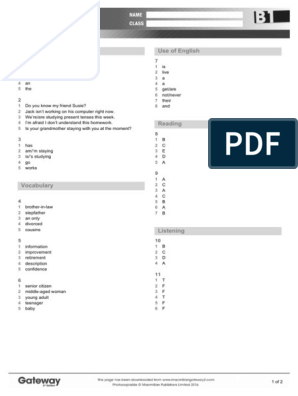0% found this document useful (0 votes)
48 views5 pagesModule 2
This document contains a student's work for their Purposive Communication module. It includes 7 activities where the student discusses different types of listening, evaluating their own listening styles, and the benefits of being a good listener.
The student identifies their primary listening styles as people-oriented, action-oriented, and content-oriented. They note that listening is important for academics, their future career as a doctor, personal relationships, and socializing. While some may find being an empathetic listener difficult, the student believes it comes naturally to themself.
Uploaded by
De Jesus, Alecxiana Mandy P.Copyright
© © All Rights Reserved
We take content rights seriously. If you suspect this is your content, claim it here.
Available Formats
Download as DOCX, PDF, TXT or read online on Scribd
0% found this document useful (0 votes)
48 views5 pagesModule 2
This document contains a student's work for their Purposive Communication module. It includes 7 activities where the student discusses different types of listening, evaluating their own listening styles, and the benefits of being a good listener.
The student identifies their primary listening styles as people-oriented, action-oriented, and content-oriented. They note that listening is important for academics, their future career as a doctor, personal relationships, and socializing. While some may find being an empathetic listener difficult, the student believes it comes naturally to themself.
Uploaded by
De Jesus, Alecxiana Mandy P.Copyright
© © All Rights Reserved
We take content rights seriously. If you suspect this is your content, claim it here.
Available Formats
Download as DOCX, PDF, TXT or read online on Scribd
/ 5






















































































